Rising to the Challenge: Class of 2021
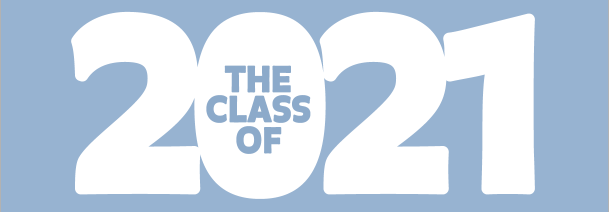
Now that vaccines are freely available and life is returning to somewhat normal—students are back on campus and most classes are again in person—we asked recent graduates what it was like to muster through their entire senior year in the face of so many challenges and uncertainties. What they all have in common is the way they dug deep to find the will to persist and prevail. Read more in their own words. (Some responses have been edited for length.)
*The Classes of 2020 and 2021 will be invited back to campus next spring for special graduation celebrations.
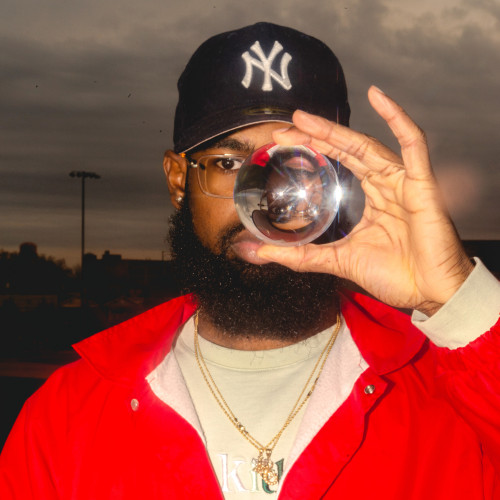
Sebastian Bass
PHOTOGRAPHY
Sebastian Bass is originally from the Elmont section of Queens and now lives in Jersey City. He’s working in retail while he formulates his plan to interview and photograph fellow Tuesday’s Children—those who lost a parent or guardian on September 11. “I hope to get this project started to provide a voice for Tuesday’s Children as well as to form an organization for children who have lost a guardian and need help finding positivity and resources.” He also hopes to become a photographer in the music industry. Bass served as a highly valued photographer for the Office of Communications and Creative Services on campus for two years.
Q: What did you find most challenging about being a student during the pandemic—personally, academically, artistically, etc.?
A: The most challenging thing for me was maintaining my artistic drive. As a portrait and event photographer, I mostly rely on photographing other people for my work. I got to a point where I was contemplating not being a photographer anymore because of this lack of drive and determination.
Q: Did you find any silver linings to the pandemic? Anything unexpected—opportunities, collaborations, etc.—that might not have happened during “normal circumstances?”
A: I definitely found some silver linings because of the pandemic. The best silver lining I discovered was self-discovery and reflection. During quarantine, there was a lot of negativity going around that made me sit with myself and ask if I really wanted to be a photographer. This process led me to the creation of my senior project. We saw an unfathomable amount of racism during the summer of 2020 and I couldn’t just sit by and do nothing. I realized that I needed to use my talent to share my voice and the voice of others in my situation. This helped me create my project about what Black men go through in America.
Q: How did working through the pandemic and earning your degree in the face of these challenges make you feel about yourself and your abilities? Anything surprise you?
A: Working through the pandemic showed me that I can do anything I put my mind to. It was hard for a lot of people to finish college or retain the motivation to do what they truly love. I found that I was able to finish my last year of college with all A’s and earn my degree.
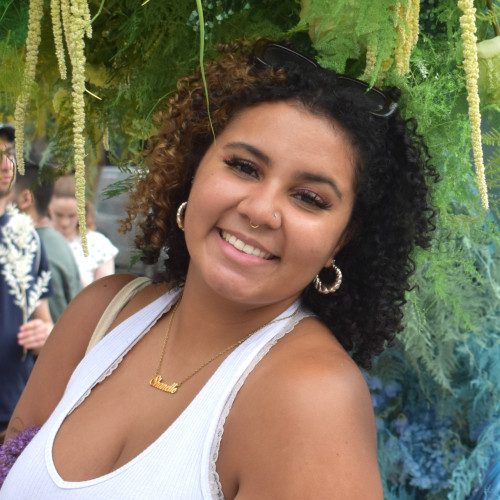
Shanelle Lopez
JOURNALISM; MINORS IN ARTS MANAGEMENT AND GENDER STUDIES
Shanelle Lopez was president of Latinx Unidos her senior year, head chair of the annual Afrodisiac event, an RA, and a Student Financial Ambassador in the Student Financial Services office. She’s originally from Staten Island and is gearing up to begin the master’s program in Arts and Cultural Management at Pratt Institute.
Q: How did you feel when the pandemic arrived and you had to adjust to remote instruction? What was that like for you?
A: When the pandemic arrived last year, I felt this great sense of uncertainty, disappointment, and nervousness. Everything was changing so quickly; each hour we were receiving new updates. It was difficult for me to adjust to remote instruction; the isolation was rather difficult as well. I continued to live on campus when the pandemic first arrived because at the time, I was an RA on campus. It was really nerve-wracking because I was away from my family as everything was unfolding.
Q: Did you find any silver linings to the pandemic? Anything unexpected—opportunities, collaborations, etc.—that might not have happened during “normal circumstances?”
A: I was able to dive deeper into my own crafts, such as my photography and creativity in general. Last summer, I started a small business where I launched a couple of t-shirt designs and opened a small shop that was rather successful. Following that, I also decided to begin an art magazine called The MAG, With Love, which had its first volume released in January 2021. The mission for this art magazine is “to create a platform for BIPOC (Black, Indigenous, People of Color) artists to display who they are and what they create to the world. The magazine strives to create a community of possible collaboration and growth while showcasing new and old works.” We just finished accepting submissions for our Summer 2021 Vol. 2.
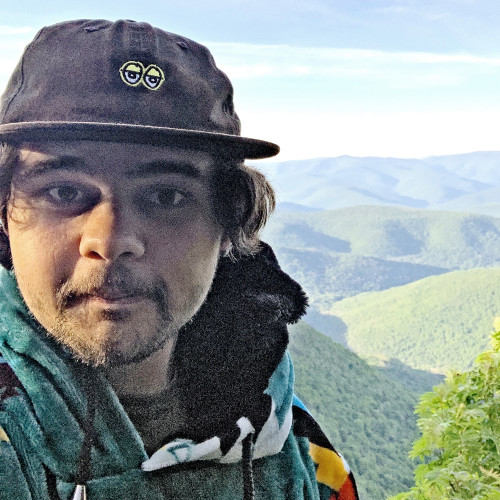
Gaige Brandon
BIOCHEMESTRY
Gaige Brandon is currently working for a vaccine startup company in Tarrytown as a downstream process development research scientist. He hopes to remain in the pharmaceutical industry during his career, but is open to whatever comes his way. “If you were to tell me last fall I’d be working as a research scientist for a viral vector vaccine company, I would probably doubt you heavily.” Brandon is also passionate about his interests in music production and visual art. “Without music and art, I would not be the person/scientist I am today.”
Q: How did you feel when the pandemic arrived and you had to adjust to remote instruction? What was that like for you?
A: I was taking a microbiology class the semester the pandemic hit. It was very fitting. I was bummed because I loved being on campus and in class. The initial lockdown was shocking and caused a lot of existential thoughts. Adjusting to remote instruction was definitely a challenge. I found myself getting much more distracted during class while at home.
Q: What did you find most challenging about being a student during the pandemic—personally, academically, etc.?
A: Personally, dealing with isolation was the most challenging part of being a student during the pandemic. As time progressed during lockdown, so did depression and anxiety. Having to cope while continuing to perform well in my classes was a challenge. Somehow, I was able to make it through, but at times there was serious doubt. Academically, the challenge I faced most often was staying focused in class or on assignments. My bedroom doubles as an electronic music studio. It was very hard to not get distracted by synthesizers while in class or doing school work. I would be lying if I said I didn’t have a jam or two during online lectures.
Q: How did working through the pandemic and earning your degree in the face of these challenges make you feel about yourself and your abilities? Anything surprise you?
A: It made me feel proud of myself to do well given the unprecedented times. It helped further solidify my confidence as a scientist and human being. Without music, art, and skateboarding, I don’t think I could have done as well as I did. During struggling times it’s necessary to find outlets to equilibrate oneself.
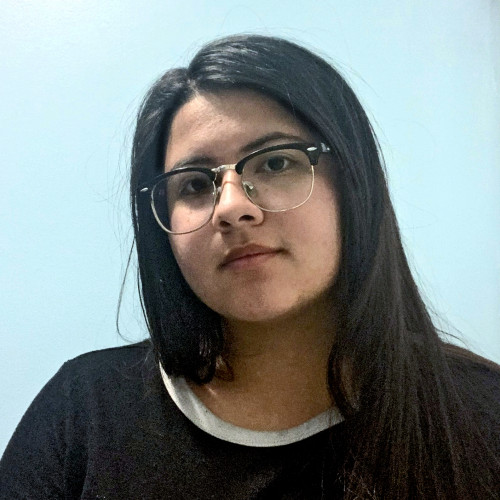
Isabel Paredes
PRINTMAKING
Isabel Paredes is living in White Plains and has been busy knitting and painting to keep creating. She plans to attend graduate school so she can eventually teach. With a keen interest in community engagement, she hopes to work in a community print shop or other nonprofit.
Q: What did you find most challenging…?
A: The most challenging thing for me throughout the pandemic was taking care of myself mentally. I knew I wasn’t going to be able to stay on campus overnight and I couldn’t be in the print shop whenever I wanted, so in the beginning of the year I would get to my studio at 9 or 10am and then literally work until 11pm, taking one, maybe two breaks the entire day. There was just so much I wanted to do and so little time, I knew I couldn’t waste any of it.
Two months into the first semester, though, after a good breakdown and a few interventions, I realized that making good work means nothing if you’re not having fun doing it. After that realization I was still on campus for those same hours, but the number of breaks increased and they were longer. Despite actually working on my art for fewer hours a day, because I was having fun and not stressing about every little detail, I was actually able to make even more work than the semester before.
Q: What did you miss the most about not being on campus or not having a typical semester if you were on campus?
A: The thing I missed the most about not having a typical year on campus was not being able to have 24/7 access to the Visual Arts building. Having the freedom to work whenever you want is one of the best perks that we definitely had as students. Not only is it just convenient for everyone in terms of getting work done, but for my friend group personally, we have jobs or had conflicting schedules or were commuters, so a majority of my favorite memories from my time at Purchase are those after-hours work sessions without the pressure of my professors or shop techs walking in on a half-thought-out project and being like, ‘Oooh, what’s this…’ and you can just relax and create with your friends. It was also just time for us to catch up on non-school related things.
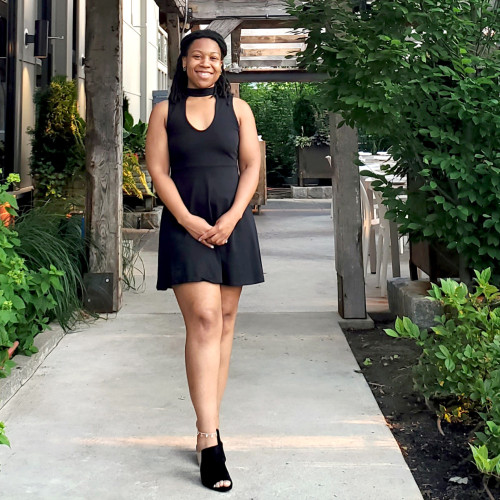
Jamonica Warren
POLITICAL SCIENCE AND INSTRUMENTAL PERFORMANCE (FRENCH HORN)
Jamonica Warren began playing French horn in the fourth grade, but her passion for political science grew after joining Model UN in high school. “I had a big interest in how policies were made and began to pay more attention to domestic and international politics.” Originally from Brewster, NY, Warren is currently living in Fort Worth, TX while she attends Texas A&M School of Law. She’s leaning toward entertainment law. “I believe artists deserve legal support from people who are not just competent in the law, but also knowledgeable and appreciative of their career.”
Q: What did you find most challenging about being a student during the pandemic—personally, academically, artistically, etc.?
A: For me, what was most challenging personally, academically, and artistically was the difficulty with collaboration and socialization. With modern technology we were able to still see our peers and communicate; however, the passing conversations in the hall, quick questions for professors, and even a passing smile were dearly missed. These little interactions were parts of my day that would really alleviate any stress or worries I had due to school work. They had such a large impact on my day and just general well-being; I didn’t notice them until they were gone.
Q: How did working through the pandemic and earning your degree in the face of these challenges make you feel about yourself and your abilities? Anything surprise you?
A: Working through the pandemic for my degrees made me realize that I do well in academics and things I am goal-oriented about only because I have great social connections that allow me mental peace and mental fortitude. If it wasn’t for my support network, I don’t think I’d be able to perform as well in anything I do. I was also surprised by my ability to cope with stress. Quarantine wasn’t pleasant, but I did find numerous things to keep me engaged and mentally stimulated such as knitting, reading, so many recipes, and bothering my aunt throughout the day.
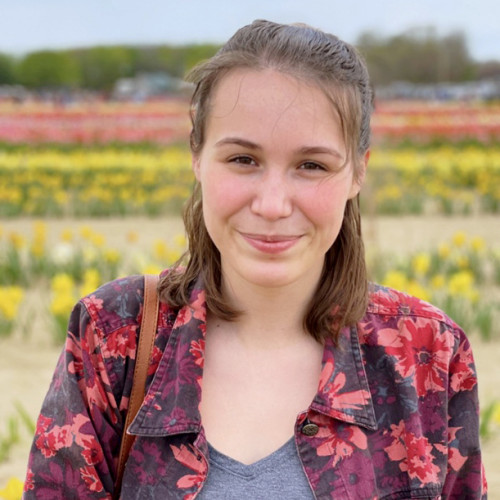
Natalie Morrow
DESIGN/TECHNOLOGY (STAGE MANAGEMENT)
Originally from Buffalo, Natalie Morrow is freelancing as a stage manager, production assistant, and production coordinator and living in Long Island City. She’s grateful that she’s been working every week since graduation and has “been able to sustain myself with work that I love doing. I thank everyone immensely who supported me in getting to where I am today.” She was an RA, SRA, and president of the Purchase Activities Board (PAB) her senior year.
Q: How did you feel when the pandemic arrived and you had to adjust to remote instruction? What was that like for you?
A: When COVID first arrived, I was an SRA (Senior Resident Assistant). Everything seemed to change hourly. The first restriction implemented was filling your water bottle on campus. You weren’t allowed to refill your reusable water bottle at the dining locations. Then, we were going to fully remote instruction for a few weeks while living on campus. Next, we were moving out by the end of the week. The next day, we were moving out ASAP. The commotion and anxiety that people were feeling was something I’ll never forget.
When we were all sent home, I went to Buffalo to stay with my parents. I made a spot in my bedroom for school with my bungee cord chair and rolling cart. It was hard at first. It was uncomfortable seeing my classmates, who I had spent almost three years with, confined to boxes. I like to keep myself busy, so I worked very hard in school. I taught myself programs like DaVinci Resolve, OBS, etc. so that I could continue to work in theatre while it was virtual. The show at school that I was stage managing was the only BFA show that moved online after the shutdown. It helped a lot that I got to maintain that form of normalcy and interaction.
Q: Did you find any silver linings to the pandemic? Anything unexpected—opportunities, collaborations, etc.—that might not have happened during “normal circumstances?”
A: I was very fortunate that I became involved with many theatre companies that wanted to do virtual work during the pandemic. I made a lot of lifelong connections that continue to help me in my career.
Q: How did working through the pandemic and earning your degree in the face of these challenges make you feel about yourself and your abilities? Anything surprise you?
A: I was just working with someone who spoke about the courage of the human spirit that continues to work through the pandemic. I never truly reflected on my experience until they said that. I never considered myself to be especially courageous, but we should all be proud of ourselves to have made it to where we are today.